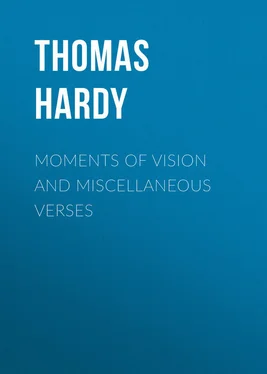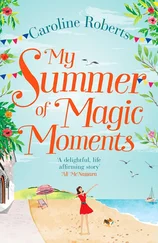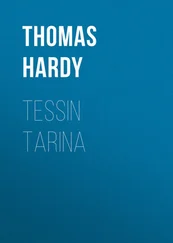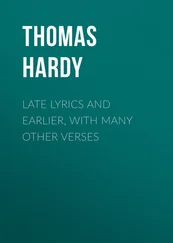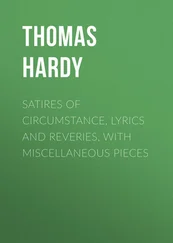Thomas Hardy - Moments of Vision and Miscellaneous Verses
Здесь есть возможность читать онлайн «Thomas Hardy - Moments of Vision and Miscellaneous Verses» — ознакомительный отрывок электронной книги совершенно бесплатно, а после прочтения отрывка купить полную версию. В некоторых случаях можно слушать аудио, скачать через торрент в формате fb2 и присутствует краткое содержание. Жанр: foreign_antique, foreign_prose, на английском языке. Описание произведения, (предисловие) а так же отзывы посетителей доступны на портале библиотеки ЛибКат.
- Название:Moments of Vision and Miscellaneous Verses
- Автор:
- Жанр:
- Год:неизвестен
- ISBN:нет данных
- Рейтинг книги:3 / 5. Голосов: 1
-
Избранное:Добавить в избранное
- Отзывы:
-
Ваша оценка:
- 60
- 1
- 2
- 3
- 4
- 5
Moments of Vision and Miscellaneous Verses: краткое содержание, описание и аннотация
Предлагаем к чтению аннотацию, описание, краткое содержание или предисловие (зависит от того, что написал сам автор книги «Moments of Vision and Miscellaneous Verses»). Если вы не нашли необходимую информацию о книге — напишите в комментариях, мы постараемся отыскать её.
Moments of Vision and Miscellaneous Verses — читать онлайн ознакомительный отрывок
Ниже представлен текст книги, разбитый по страницам. Система сохранения места последней прочитанной страницы, позволяет с удобством читать онлайн бесплатно книгу «Moments of Vision and Miscellaneous Verses», без необходимости каждый раз заново искать на чём Вы остановились. Поставьте закладку, и сможете в любой момент перейти на страницу, на которой закончили чтение.
Интервал:
Закладка:
Thomas Hardy
Moments of Vision and Miscellaneous Verses
MOMENTS OF VISION
That mirror
Which makes of men a transparency,
Who holds that mirror
And bids us such a breast-bare spectacle see
Of you and me?
That mirror
Whose magic penetrates like a dart,
Who lifts that mirror
And throws our mind back on us, and our heart,
Until we start?
That mirror
Works well in these night hours of ache;
Why in that mirror
Are tincts we never see ourselves once take
When the world is awake?
That mirror
Can test each mortal when unaware;
Yea, that strange mirror
May catch his last thoughts, whole life foul or fair,
Glassing it – where?
THE VOICE OF THINGS
Forty Augusts – aye, and several more – ago,
When I paced the headlands loosed from dull employ,
The waves huzza’d like a multitude below
In the sway of an all-including joy
Without cloy.
Blankly I walked there a double decade after,
When thwarts had flung their toils in front of me,
And I heard the waters wagging in a long ironic laughter
At the lot of men, and all the vapoury
Things that be.
Wheeling change has set me again standing where
Once I heard the waves huzza at Lammas-tide;
But they supplicate now – like a congregation there
Who murmur the Confession – I outside,
Prayer denied.
“WHY BE AT PAINS?”
( Wooer’s Song )
Why be at pains that I should know
You sought not me?
Do breezes, then, make features glow
So rosily?
Come, the lit port is at our back,
And the tumbling sea;
Elsewhere the lampless uphill track
To uncertainty!
O should not we two waifs join hands?
I am alone,
You would enrich me more than lands
By being my own.
Yet, though this facile moment flies,
Close is your tone,
And ere to-morrow’s dewfall dries
I plough the unknown.
“WE SAT AT THE WINDOW”
( Bournemouth , 1875)
We sat at the window looking out,
And the rain came down like silken strings
That Swithin’s day. Each gutter and spout
Babbled unchecked in the busy way
Of witless things:
Nothing to read, nothing to see
Seemed in that room for her and me
On Swithin’s day.
We were irked by the scene, by our own selves; yes,
For I did not know, nor did she infer
How much there was to read and guess
By her in me, and to see and crown
By me in her.
Wasted were two souls in their prime,
And great was the waste, that July time
When the rain came down.
AFTERNOON SERVICE AT MELLSTOCK
( Circa 1850)
On afternoons of drowsy calm
We stood in the panelled pew,
Singing one-voiced a Tate-and-Brady psalm
To the tune of “Cambridge New.”
We watched the elms, we watched the rooks,
The clouds upon the breeze,
Between the whiles of glancing at our books,
And swaying like the trees.
So mindless were those outpourings! —
Though I am not aware
That I have gained by subtle thought on things
Since we stood psalming there.
AT THE WICKET-GATE
There floated the sounds of church-chiming,
But no one was nigh,
Till there came, as a break in the loneness,
Her father, she, I.
And we slowly moved on to the wicket,
And downlooking stood,
Till anon people passed, and amid them
We parted for good.
Greater, wiser, may part there than we three
Who parted there then,
But never will Fates colder-featured
Hold sway there again.
Of the churchgoers through the still meadows
No single one knew
What a play was played under their eyes there
As thence we withdrew.
IN A MUSEUM
Here’s the mould of a musical bird long passed from light,
Which over the earth before man came was winging;
There’s a contralto voice I heard last night,
That lodges in me still with its sweet singing.
Such a dream is Time that the coo of this ancient bird
Has perished not, but is blent, or will be blending
Mid visionless wilds of space with the voice that I heard,
In the full-fugued song of the universe unending.
Exeter.
APOSTROPHE TO AN OLD PSALM TUNE
I met you first – ah, when did I first meet you?
When I was full of wonder, and innocent,
Standing meek-eyed with those of choric bent,
While dimming day grew dimmer
In the pulpit-glimmer.
Much riper in years I met you – in a temple
Where summer sunset streamed upon our shapes,
And you spread over me like a gauze that drapes,
And flapped from floor to rafters,
Sweet as angels’ laughters.
But you had been stripped of some of your old vesture
By Monk, or another. Now you wore no frill,
And at first you startled me. But I knew you still,
Though I missed the minim’s waver,
And the dotted quaver.
I grew accustomed to you thus. And you hailed me
Through one who evoked you often. Then at last
Your raiser was borne off, and I mourned you had passed
From my life with your late outsetter;
Till I said, “’Tis better!”
But you waylaid me. I rose and went as a ghost goes,
And said, eyes-full “I’ll never hear it again!
It is overmuch for scathed and memoried men
When sitting among strange people
Under their steeple.”
Now, a new stirrer of tones calls you up before me
And wakes your speech, as she of Endor did
(When sought by Saul who, in disguises hid,
Fell down on the earth to hear it)
Samuel’s spirit.
So, your quired oracles beat till they make me tremble
As I discern your mien in the old attire,
Here in these turmoiled years of belligerent fire
Living still on – and onward, maybe,
Till Doom’s great day be!
Sunday , August 13, 1916.
AT THE WORD “FAREWELL”
She looked like a bird from a cloud
On the clammy lawn,
Moving alone, bare-browed
In the dim of dawn.
The candles alight in the room
For my parting meal
Made all things withoutdoors loom
Strange, ghostly, unreal.
The hour itself was a ghost,
And it seemed to me then
As of chances the chance furthermost
I should see her again.
I beheld not where all was so fleet
That a Plan of the past
Which had ruled us from birthtime to meet
Was in working at last:
No prelude did I there perceive
To a drama at all,
Or foreshadow what fortune might weave
From beginnings so small;
But I rose as if quicked by a spur
I was bound to obey,
And stepped through the casement to her
Still alone in the gray.
“I am leaving you.. Farewell!” I said,
As I followed her on
By an alley bare boughs overspread;
“I soon must be gone!”
Even then the scale might have been turned
Against love by a feather,
– But crimson one cheek of hers burned
When we came in together.
Интервал:
Закладка:
Похожие книги на «Moments of Vision and Miscellaneous Verses»
Представляем Вашему вниманию похожие книги на «Moments of Vision and Miscellaneous Verses» списком для выбора. Мы отобрали схожую по названию и смыслу литературу в надежде предоставить читателям больше вариантов отыскать новые, интересные, ещё непрочитанные произведения.
Обсуждение, отзывы о книге «Moments of Vision and Miscellaneous Verses» и просто собственные мнения читателей. Оставьте ваши комментарии, напишите, что Вы думаете о произведении, его смысле или главных героях. Укажите что конкретно понравилось, а что нет, и почему Вы так считаете.
